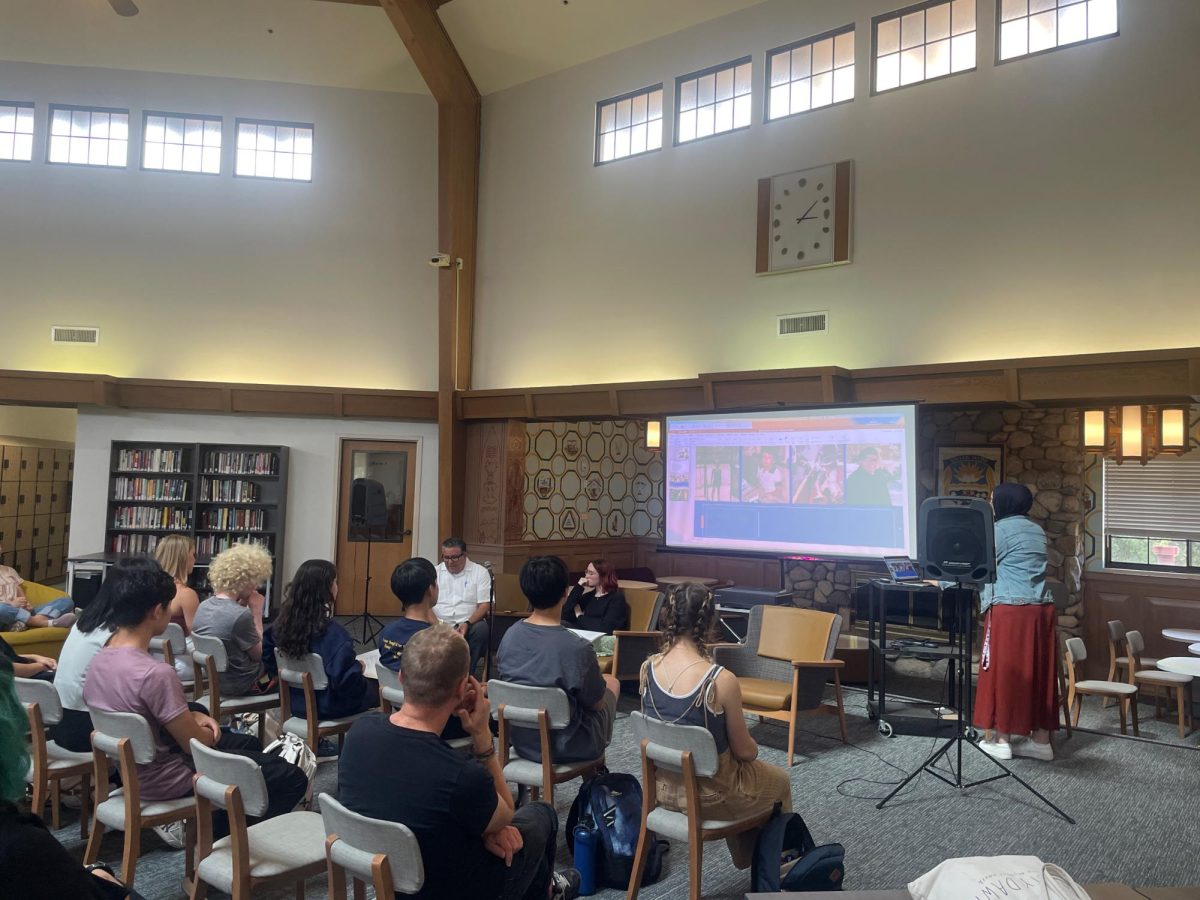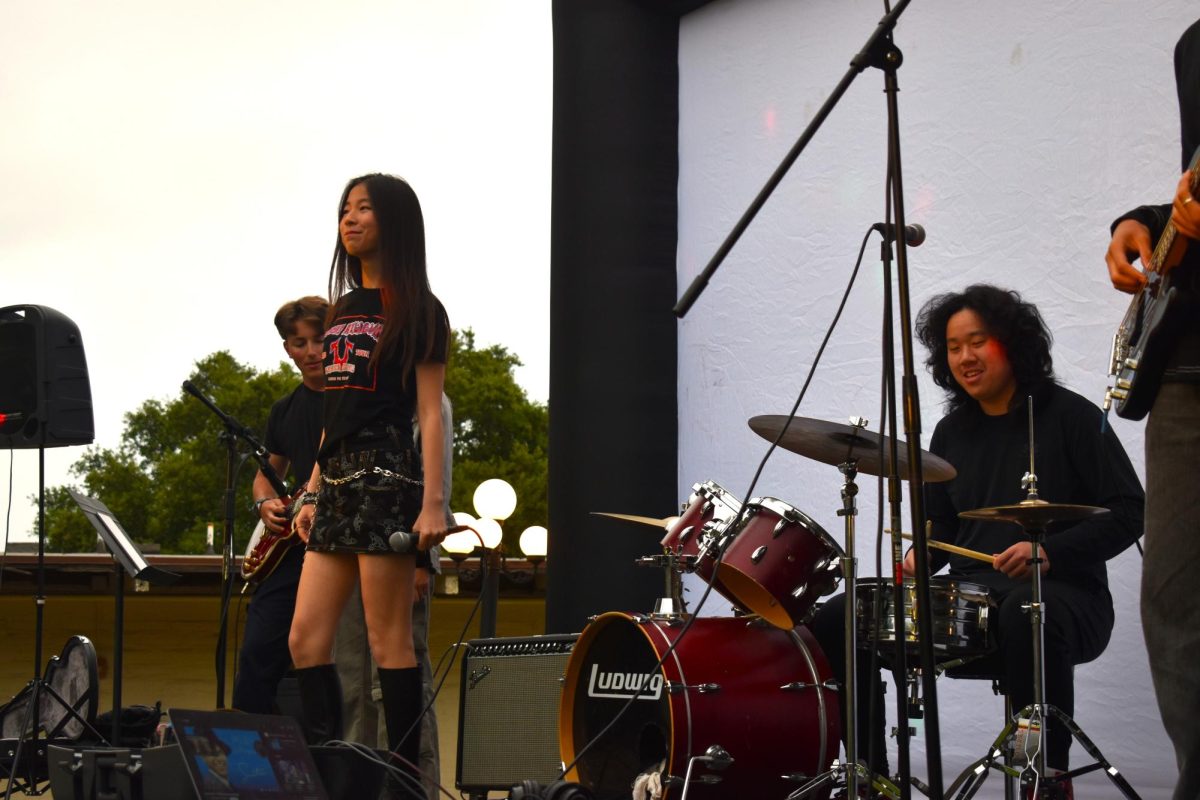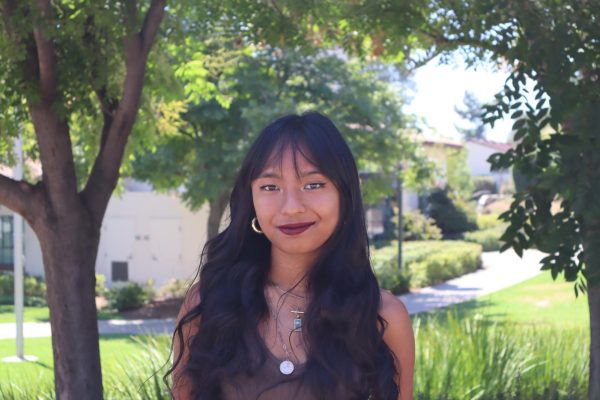“This is about me. This is my story,” said Roberto Ayala, world languages department faculty, beginning the first storytelling of the academic year.
People spend most of their time listening to stories, inside and outside the classrooms. People praise and critique real stories from around the world or fictional stories in books at the library. In this age of social media, we are offered countless stories, anecdotes and experiences that shape and connect our generation.
Something that most Webb students do not realize is that the most impactful, beautiful stories can come from the people around you.
More than 40 authentic Webb stories have been told at Webb’s storytelling sessions. Like chapel talks, storytelling can be about anything, ranging from life-changing moments to a positive interaction someone has had in their life.
“It really reveals to you things about a person you would not know otherwise,” said Hanbo Xu (‘25), a storyteller and regular attendee. “I sit next to Elena in my Cold War class; I never knew anything about what she talked about in her story.”
For many, storytelling sessions are a chance for people to share a part of their identity that they might not be able to share otherwise. Much of the appeal comes from the intimacy that people feel during stories that are being told. These anecdotes are experiences that have shaped people into who they have become, giving the chance for people to peek into an element that is deeper than the surface.
As one of the community building events, the Diversity, Equity, and Inclusion department hosts a storytelling session every other month in Fawcett Library. Additionally, faculty, staff, educators, and students alike are encouraged to share their stories. Regular attendance comes to about 30 to 40 people and attendees range from all diverse kinds of places, people, backgrounds, and identities. Storytelling features a wide range of themes, from Asian Identity to celebrations of Ramadan.
“I really enjoyed Priscilla Centeno and Jackie Shugert’s stories,” Emily Berg (‘24) said. “I liked the fact that they were on the same day because they have strongly shared aspects of their identity but totally different stories to tell. They were quite intimate, but they left me with a sense of hope for them and myself.”
Another aspect that people enjoy is that students choose to come listen. While chapel talks are mandatory, storytelling sessions are full of people who are willing to immerse themselves in an experience that is not their own.
For these stories, it does not matter how simple or complex their narrative seems to be — each part is unique and remarkable in its own way.
“I feel glad that they can share with everyone about their experience, even if my experience is not like theirs,” Triet Pham (‘27) said.
The most recent storytelling was on November 1st featuring Dr. Helga Zambrano, humanities department faculty.
Her story explored the way music shaped her throughout her life. Uniquely, she played music from her childhood in the background as she spoke about her family, her life, and her favorite songs.
“My experience was vulnerable but in a good way,” Dr. Zambrano said. “To be honest, I was nervous about how it would be received, yet at the same time, I felt excited to be given the space to be vulnerable.”
Started in 2021, storytelling has grown into more than just an event; it is nowan outlet for centering belongingness and beautiful experiences. John Choi, Director of Equity, wanted an event to draw the community together in the most thoughtful and authentic way possible.
“I love to tell my own stories and I love to hear other people’s stories,” Mr. Choi said. “For me, it is a very natural way to bond people and our community.”
The level of connection seen during these sessions is unlike any other event on campus. Storytelling is vulnerable, educational, hopeful, sad, and empowering all at the same time. It is a wonderful way to get to know each other as humans and not just as our roles in this community.









